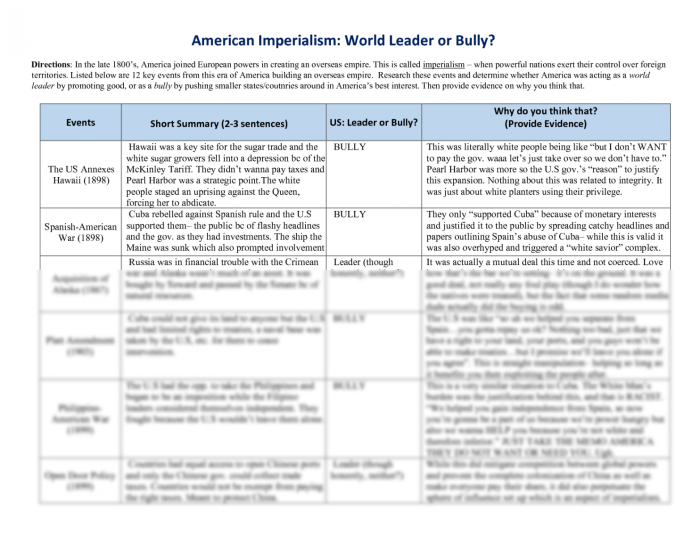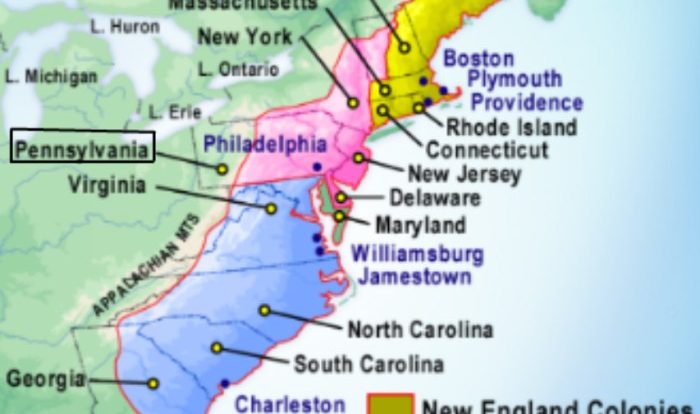Embark on an academic odyssey with our comprehensive Reasons for American Imperialism Worksheet. This meticulously crafted guide delves into the historical, economic, political, and ideological underpinnings of America’s expansionist endeavors, shedding light on the motivations, methods, and consequences that shaped a pivotal era in global history.
1. Historical Context

American imperialism has its roots in the nation’s founding principles and its desire for expansion. In the 19th century, the United States pursued a policy of Manifest Destiny, believing it was destined to expand across the North American continent. This ideology, combined with economic and political factors, led to the acquisition of territories such as the Louisiana Purchase, the Mexican Cession, and Alaska.
Economic Factors, Reasons for american imperialism worksheet
The desire for resources and markets played a significant role in American imperialism. The Industrial Revolution created a demand for raw materials, which the United States sought to acquire from overseas territories. American businesses and corporations also sought new markets for their products, leading to the expansion of American economic influence abroad.
Political Factors
Manifest Destiny, the belief in America’s divine right to expand, influenced the nation’s foreign policy. Nationalism and the belief in American superiority also contributed to the desire for imperial expansion. Political leaders, such as President William McKinley, used these ideas to justify the acquisition of new territories.
Ideological Factors
The idea of the “White Man’s Burden” justified American imperialism by portraying it as a moral duty to civilize and uplift non-Western peoples. Social Darwinism, which emphasized the superiority of Western civilization, also played a role in shaping American attitudes towards imperialism.
Methods of Imperialism
The United States employed various methods to establish and maintain control over foreign territories. These included military force, economic coercion, and diplomatic pressure. The use of military force was particularly prevalent during the Spanish-American War and the Philippine-American War.
Consequences of Imperialism
American imperialism had both positive and negative consequences for the United States and the colonized territories. For the United States, imperialism led to economic growth and increased global influence. However, it also resulted in political tensions and social unrest. For the colonized territories, imperialism brought economic exploitation, cultural disruption, and political instability.
FAQ Corner: Reasons For American Imperialism Worksheet
What is the main idea behind the concept of Manifest Destiny?
Manifest Destiny refers to the belief that the United States was destined to expand its territory across the North American continent, from the Atlantic to the Pacific Ocean.
How did industrialization contribute to American imperialism?
Industrialization led to increased demand for raw materials and markets, which drove American businesses and corporations to seek expansion overseas.
What was the role of religious beliefs in American imperialism?
Many Americans believed that they had a moral duty to spread Christianity and Western civilization to other parts of the world.


